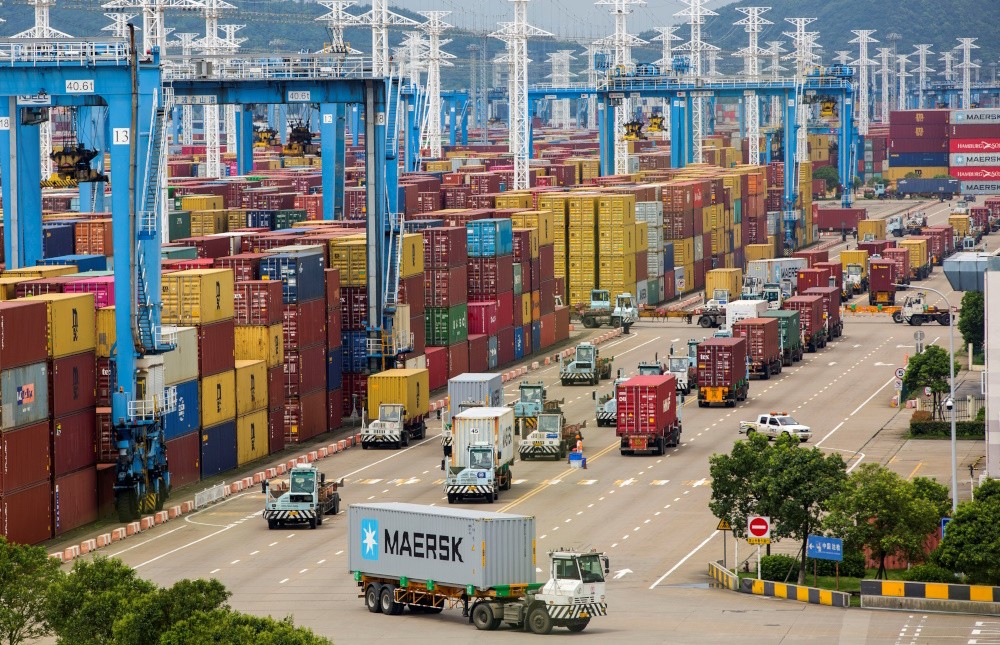Chinese enterprises are facing severe tariff hardship.

The impact of tariffs is becoming increasingly tangible for Chinese enterprises. Numerous Chinese manufacturers believed they could withstand the 10% additional tariffs enacted by the Trump administration in early February. The forthcoming 10% proposed tariff increase—set to be implemented on Tuesday—signifies a substantial escalation of economic strain, suggesting further challenges may lie ahead.
Chinese manufacturers that intended to reduce prices to assist customers in managing the initial tariff increase are now facing the prospect of elevated duties for their clients. Entities currently functioning with minimal profit margins may face additional pressure. The recent tariff proposal from Trump intensifies the momentum among Chinese manufacturers to relocate their production facilities, particularly towards Southeast Asia. The process of manufacturing and exporting goods from foreign nations allows American importers to circumvent elevated tariffs imposed on Chinese merchandise—unless, of course, such nations become the focus of Trump’s trade policies as well.
The recent tariff proposal from Trump intensifies the impetus for Chinese manufacturers to relocate their production facilities beyond national borders. During his initial presidential term, Trump’s imposition of tariffs on Chinese imports prompted numerous companies to adopt a “China plus one” strategy, actively exploring alternatives to China as the preeminent hub of manufacturing. Vietnam has emerged as a significant beneficiary, drawing heightened investment from firms based in China and beyond. Last year, products originating from Vietnam constituted over 4% of U.S. goods imports, a notable increase from approximately 2% in 2017, as per the International Trade Centre’s examination of U.S. Census Bureau data.
However, Trump’s aspirations regarding trade policy in a potential second term reach further than merely addressing China. The administration is advancing its agenda to impose tariffs on Canada and Mexico, while also suggesting reciprocal duties that may increase import taxes from various nations. The White House is taking steps to limit Chinese investments in the United States.
For Xue Feng, proprietor of Shanghai Jefa Machinery, the announcement of new tariff hikes has prompted a measured response, leading him to exercise caution rather than rush into decisions that he might later reconsider. The firm specializes in the production of valves utilized in oil drilling, primarily catering to a domestic clientele in the United States. Xue contemplated relocating a portion of production to the United States to preempt escalating tariffs and capitalize on the heightened demand for valves, spurred by the administration’s emphasis on bolstering domestic oil output. Currently, he is experiencing a reconsideration of his previous stance. He indicated that he can tolerate certain tariff hikes at present, as his products are priced at half or even a third of those of American rivals. “Amidst the myriad of changes occurring, the level of uncertainty is escalating.” “If we find ourselves in a state of disarray and fail to maintain our rhythm, the repercussions could be severe,” stated Xue.
On Friday, China’s Ministry of Commerce articulated its opposition to unilateral tariffs, calling on the United States to engage in dialogue to resolve existing differences, while also pledging to implement countermeasures if deemed necessary. Trump has linked his two announced tariff increases during his second term to China’s involvement in the global fentanyl supply chain, a move that a spokesman for the Chinese Commerce Ministry has characterized as an effort to “pass the buck.”
According to Ken Huo, a manufacturing consultant based in Foshan, a factory town in southern China, smaller Chinese manufacturers with constrained resources find themselves in a precarious situation. Such enterprises find it challenging to allocate substantial resources for significant investments, including the establishment of new facilities in Southeast Asia. Huo is affiliated with a trade association in Foshan, recognized as a center for furniture manufacturing. He noted that his WeChat messaging app was inundated with messages from local business owners conveying their confusion and apprehension following the recent tariff announcement. “The most concerning aspect is our uncertainty regarding the forthcoming actions of Trump’s administration concerning tariffs,” he stated.
Chinese leader Xi Jinping appears disinclined to pursue a deal exclusively addressing fentanyl, instead seeking to negotiate a more comprehensive agreement that could shape the future of bilateral relations with the United States. There is a broad consensus among economists that tariffs increase the cost of goods for American consumers. Edward Rosenfeld, the chief executive of footwear manufacturer Steve Madden, stated during an earnings call on Wednesday that the company “will be selectively raising prices” in the fall to mitigate the impact of tariffs. Steve Madden has indicated that it is persistently shifting its production operations away from China. The manufacturer of footwear and fashion accessories reported that, to date, 58% of its imports into the U.S. originated from China, a significant decline from the 71% recorded in November.
Cui Shu, a lawyer based in Xiamen, a city in southeastern China, found himself inundated with calls and text messages from clients on Friday morning. They were urgently seeking his counsel regarding President Trump’s recent announcement, made via social media just hours prior, concerning a proposed 10% tariff on all imports from China. One of Cui’s clients, a producer of electrical transformers, had commenced the relocation of its production facilities to Malaysia. Another entity, a manufacturer of auto parts, was considering relocating its production to Thailand. “Firms are experiencing a state of alarm and are actively seeking remedies”. Cui, the attorney, articulated two key recommendations for clients: to diversify their customer bases in order to lessen dependence on the U.S. market, and to relocate production to mitigate tariff-related risks.










